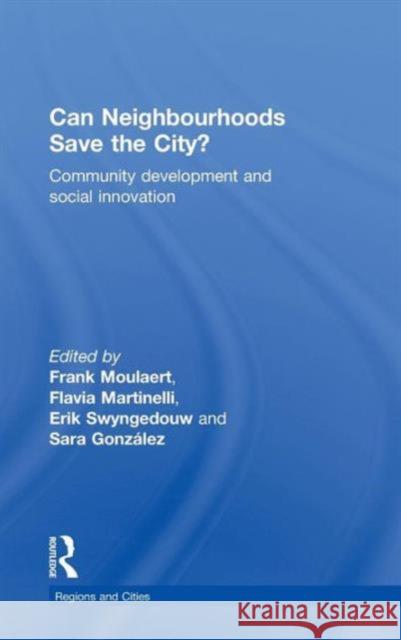Can Neighbourhoods Save the City?: Community Development and Social Innovation » książka
Can Neighbourhoods Save the City?: Community Development and Social Innovation
ISBN-13: 9780415485883 / Angielski / Twarda / 2010 / 248 str.
Can Neighbourhoods Save the City?: Community Development and Social Innovation
ISBN-13: 9780415485883 / Angielski / Twarda / 2010 / 248 str.
(netto: 766,51 VAT: 5%)
Najniższa cena z 30 dni: 730,42
ok. 16-18 dni roboczych.
Darmowa dostawa!
For decades, neighbourhoods been pivotal sites of social, economic and political exclusion processes, and civil society initiatives, attempting bottom-up strategies of re-development and regeneration. In many cases these efforts resulted in the creation of socially innovative organizations, seeking to satisfy the basic human needs of deprived population groups, to increase their political capabilities and to improve social interaction both internally and between the local communities, the wider urban society and political world. SINGOCOM - Social INnovation GOvernance and COMmunity building - is the acronym of the EU-funded project on which this book is based. Sixteen case studies of socially-innovative initiatives at the neighbourhood level were carried out in nine European cities, of which ten are analysed in depth and presented here. The book compares these efforts and their results, and shows how grass-roots initiatives, alternative local movements and self-organizing urban collectives are reshaping the urban scene in dynamic, creative, innovative and empowering ways. It argues that such grass-roots initiatives are vital for generating a socially cohesive urban condition that exists alongside the official state-organized forms of urban governance. The book is thus a major contribution to socio-political literature, as it seeks to overcome the duality between community-development studies and strategies, and the solidarity-based making of a diverse society based upon the recognising and maintaining of citizenship rights. It will be of particular interest to both students and researchers in the fields of urban studies, social geography and political science.
Development theory generally assumes that macro rather than micro scales are more appropriate than to initiate city-wide or region-wide development impulses. It is often assumed that this is the appropriate level to assess or to implement urban development policies and strategies. Neighbourhood development is relegated to the domain of social integration policies, usually to alleviate the exclusionary processes unleashed by urban social and economic restructuring dynamics.
Most books on and theories of urban-regional development follow this model, and concentrate on the scale of the city or the region as a whole - it is exactly this perspective that this book challenges. Instead of a top-down approach, it looks at the impact and successes of bottom-up neighbourhood based initiatives.
Using the considerable research has been undertaken into the effects of economic, social and political exclusion processes and practices in particular neighbourhoods in European cities, the core argument of this book is that local initiatives have sparked regeneration processes that have generated substantial city-wide re-development dynamics. The contributions in this book analyse and document a variety of innovative local urban strategies and initiatives in a range of European cities and their impact on wider urban socio-economic and political restructuring processes.











